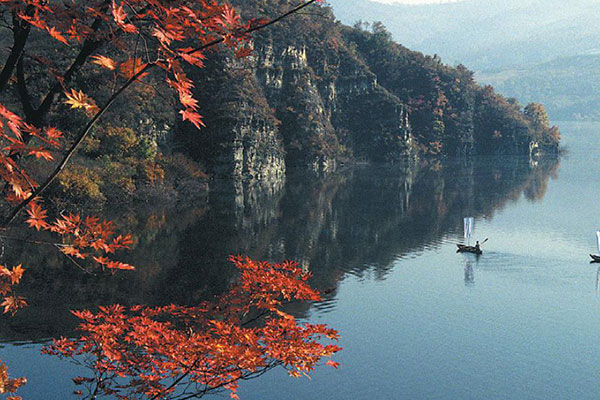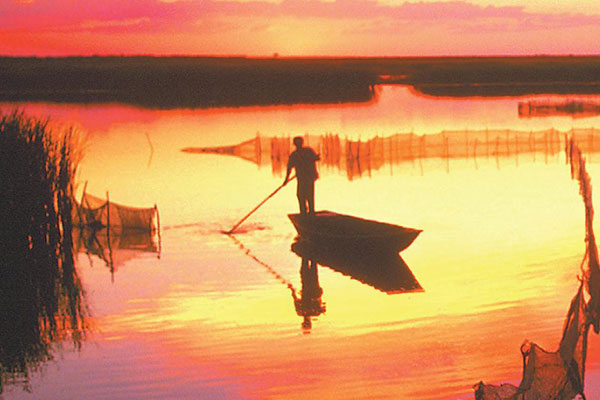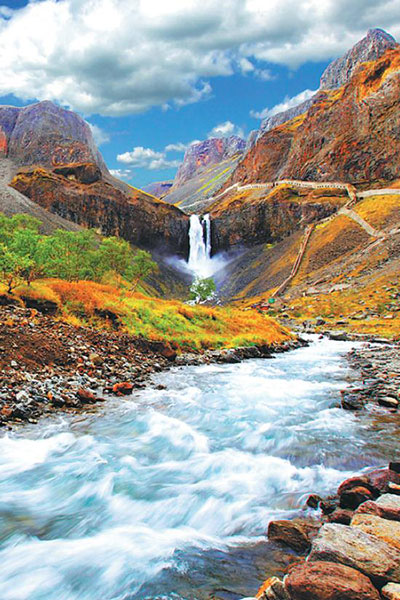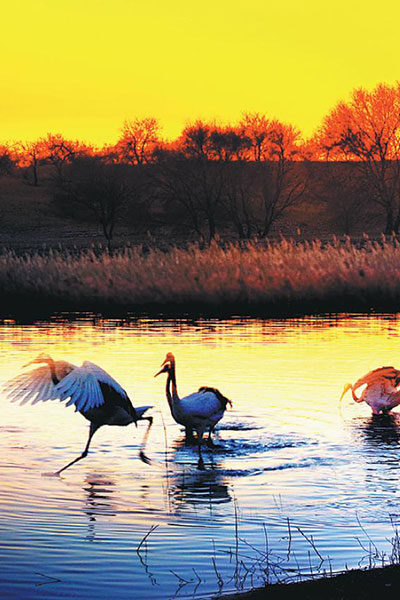
Elephant hat dance is one of the nation’s intangible cultural heritages.[Photo provided to China Daily]
Jilin’s local government has identified three “function zones” in the province where it plans to introduce a number of ecological restoration and protection programs in a bid to step up the protection of resources, and improve the local natural environment.
The function zones contain forests, farmland and wetlands, three natural resources that underpin both economic growth and local communities.
“Jilin is part of the colorful picture of China, with grasslands in the west, mountains in the east and plains in the middle,” said Bayin Chaolu, Party chief of the province. “Here we have abundant farmland with fertile black soil, clear blue sky and green forests.
“The province’s superb environment and ecological resources are its most precious treasures and greatest advantage.”

The bank of the Songhua Lake in Jilin.[Photo provided to China Daily]
In 1999, the Chinese government approved Jilin as one of the country’s pilot provinces for ecological construction. This led to the establishment of numerous projects and initiatives, including the founding of the Changbai Mountains Protection and Development Management Committee, which oversees ecological protection and construction projects in the area. The Changbai Mountains region features extensive forests and is the source of the province’s three major rivers: The Songhua, Tumen and Yalu. Sitting in one of the world’s largest nutrient-rich black soil zones, central Jilin is a national key growing area of commodity grain. Vast grasslands and wetlands can be found in the west of the province, and they provide a habitat for many rare bird species.
“Using the ecological resources, we are attempting to implement a development model that integrates the environment and economy and harmonizes human and nature,” said the Party chief. To achieve these aims, the provincial authority has drawn up plans that target the three function zones in east, west and central Jilin. In the Changbai Mountains area, the government plans to restore the forests’ ecosystems, and continue to rebuild the shantytowns.
To date, 45 lakes with a total water reserve of 1 billion cubic meters have been connected, and about 500 sq km of wetland has been recovered.

A fisherman catches fish at the Songhua River in Jilin.[Photo provided to China Daily]

Waterfall at the Changbai Mountains in Jilin province.[Photo provided to China Daily]

Xianghai Natural Reserve in Baicheng city in Jilin is home to red-crown cranes.[Photo provided to China Daily]
